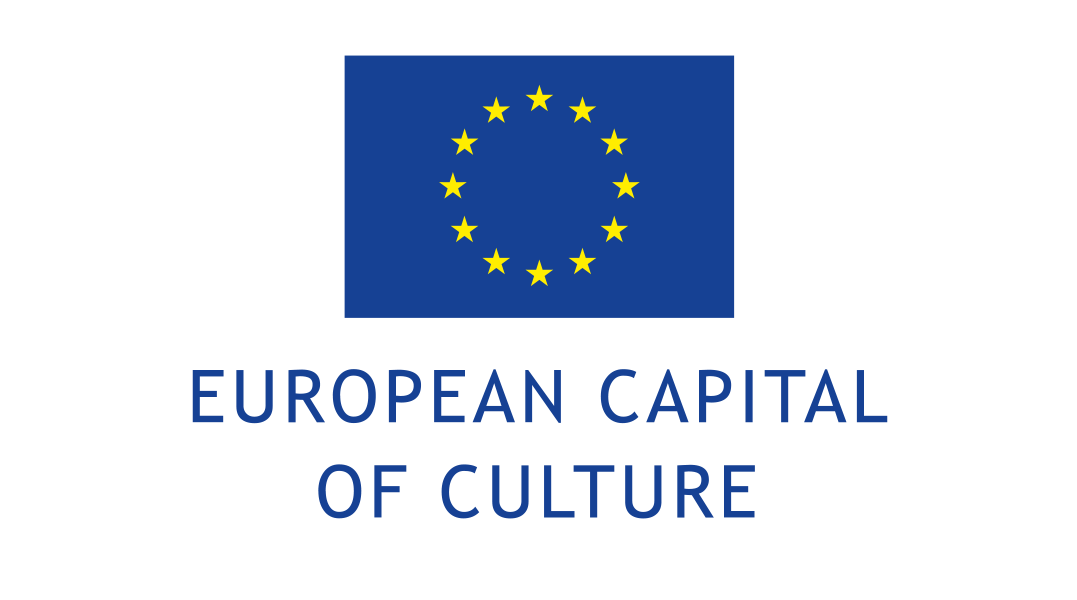In recent times, the EU has faced unprecedented challenges: a global pandemic followed by Russia’s war of aggression against Ukraine and the ensuing energy crisis, along with an increasingly unstable international situation, exacerbated by the Israel–Hamas war.
These events have demonstrated the need for all 27 Member States to work even more closely together and be able to respond quickly and determinedly to new situations.
To ensure a rapid economic recovery from the pandemic, the EU set up a special recovery fund known as NextGenerationEU. With an investment of over €800 billion, NextGenerationEU has not only enabled the EU to respond to the challenges posed by the COVID-19 pandemic, but is also helping EU countries to revitalise their economies. By investing in projects and initiatives that make the EU healthier, greener and more digital, NextGenerationEU is also making the EU better prepared to deal with future challenges. For example,in the context of Russia’s war of aggression against Ukraine and the global energy crisis, it is already supporting EU countries in their efforts to phase out Russian fossil fuels and transition to clean energy.
The money spent by the EU (the EU budget) comes from several sources: customs duties; contributions based on the value added tax collected by EU countries; and direct contributions by EU countries. A new source of revenue – a levy on non-recycled plastic packaging waste – was introduced in January 2021.
From contributing to new and better roads, railways and airports to developing rural areas and enabling study opportunities abroad, the EU budget helps to deliver on the things that matter to people in the EU. As well as leading the digital transformation and the fight against climate change, it also helps to reduce disparities within and between EU countries.
Following Russia’s invasion of Ukraine in February 2022, the EU responded rapidly in support of Ukraine and its people. This included providing humanitarian aid, emergency assistance, financial and operational support, military assistance and support at the EU border and in Moldova.
As part of its humanitarian assistance, the EU has been providing food, shelter and medical aid to people affected by the conflict. It also took the exceptional measure of granting temporary protection to millions of people fleeing Ukraine, providing them with access to accommodation, schools, healthcare and jobs in the EU.
The EU’s financial assistance has helped stabilise Ukraine’s economy, restore infrastructure and improve defence and security capabilities.

The EU has also led the international condemnation of Russia’s war of aggression against Ukraine and imposed hard-hitting sanctions on Russia and those complicit in the war. These measures seek to isolate Russia economically and limit its capacity for military aggression.
The EU, together with its Member States and financial institutions, has mobilised over €120 billion in overall support for Ukraine.
Find out more about EU support provided to Ukraine.
Russia’s war of aggression has massively disrupted the world’s energy system by causing price hikes and uncertainty over gas supply, worsening an already difficult situation on the energy market following the pandemic.
What is the EU doing to address this?

© Adobe Stock
Phasing out Russian fossil fuels
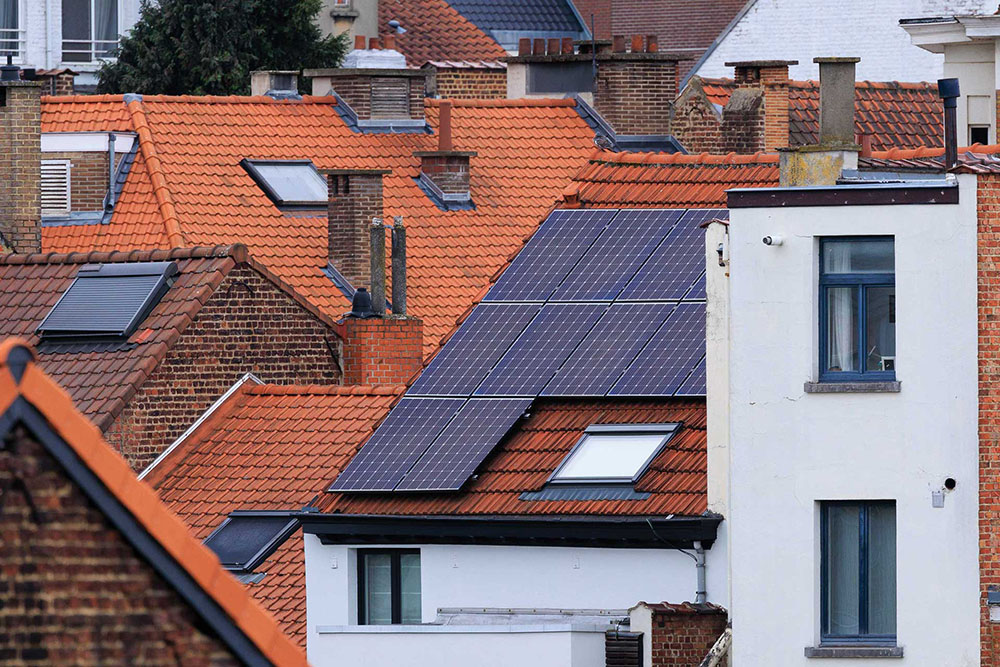
Accelerating the production of renewable energy (hydrogen, wind, solar)

Reducing bills for citizens and businesses

Reducing energy demand
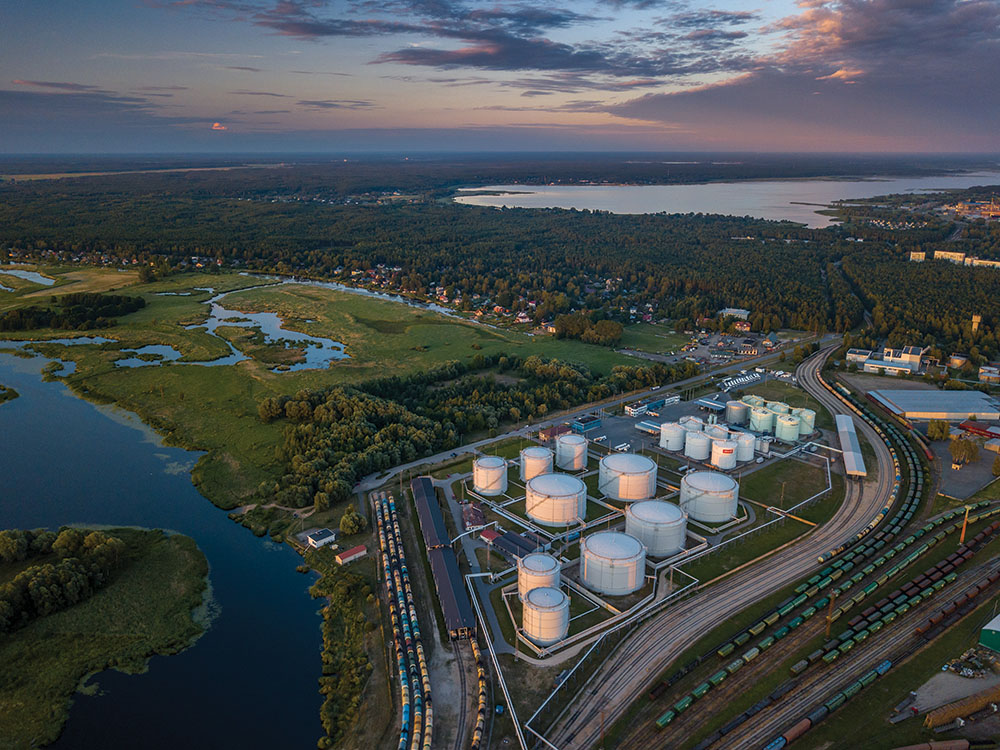
© Adobe Stock
Increasing gas storage for winter

© Adobe Stock
Enabling EU countries to buy energy together to get better prices
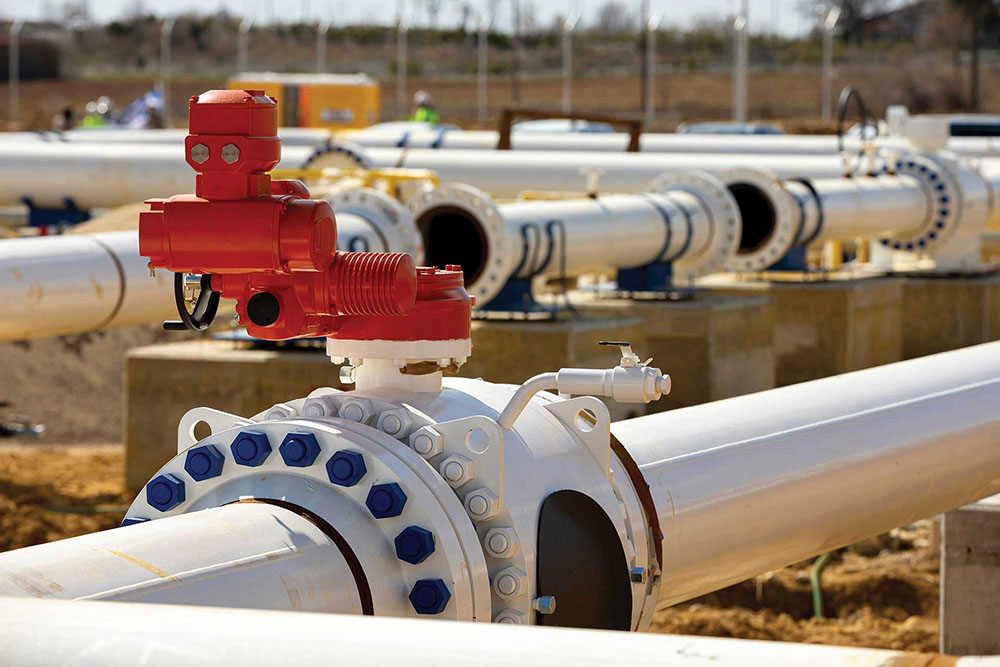
© Adobe Stock
Strengthening rules to ensure that any EU country receives help in an emergency

© Adobe Stock
Investing in infrastructure so that all EU countries have at least two sources of gas supply

Empowering consumers so they can have multiple contracts and share the electricity they produce with neighbours
Find out more about the EU’s work to secure safe, clean and affordable energy.
The European Green Deal is the EU’s strategy to create a modern and competitive European economy. It aims to make Europe the first climate neutral continent by 2050, at which point we will produce no more greenhouse gases than our ecosystems can naturally absorb.
As a first milestone on this ambitious path, the EU has committed to cutting its net greenhouse gas emissions by at least 55 % by 2030, compared to 1990 levels. The EU has already put in place the key measures needed to achieve this goal. All sections of society and the economy will have to play their part, from industry, energy and transport to food production, agriculture and construction. There will be financial support for those regions, industries and workers that face the greatest challenges.
To keep the EU on its path towards climate neutrality, the next step will be for EU countries to agree on a 2040 target.
At least 30 % of the EU’s spending between 2021 and 2027 will be on tackling climate change and its effects.
What’s in it for you?
We can all do our bit, from reducing food waste and recycling more to taking a bike instead of a car, or even planting a tree. If you want to get involved, check out the European climate pact, which brings people and organisations together to share information on climate action. Help us build a greener Europe!
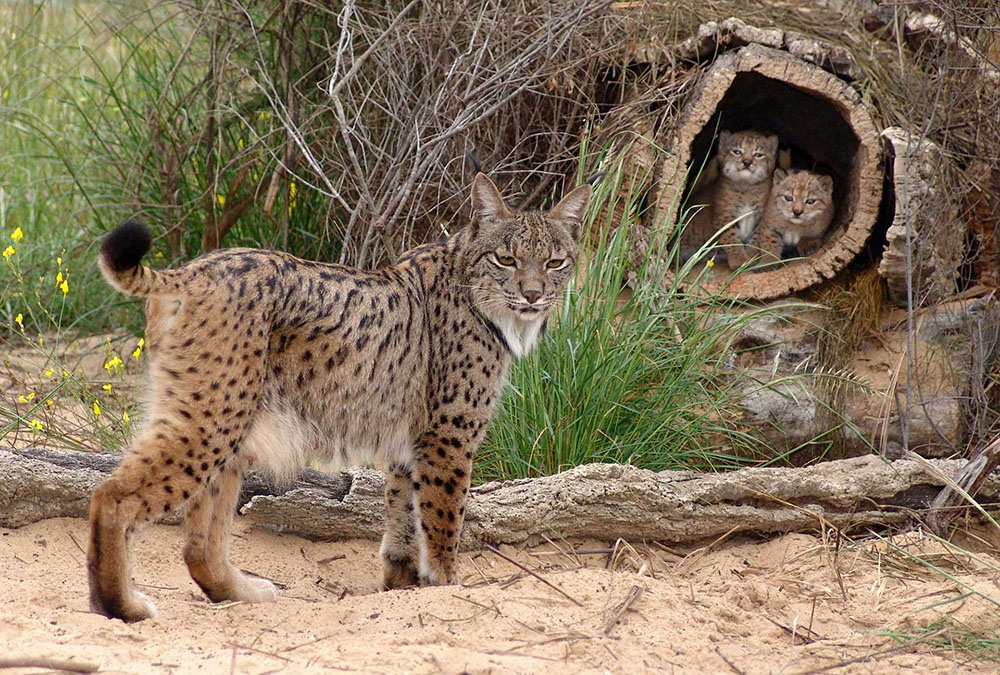
© LIFE06 NAT/E/000209/Aixa SOPEÑA.
The Iberian lynx is back from the verge of extinction in Portugal and Spain thanks to the efforts of many, including the work of projects funded by the EU’s LIFE programme. The return of the species is one of Europe’s greatest animal conservation success stories.

Natura 2000 is the world’s largest network of protected areas, safeguarding thousands of havens for Europe’s most valuable and threatened species and habitats.
The EU has funded the conversion of two passenger and goods ferries from heavy oil to more environmentally friendly electric batteries. They operate on the busy route between Helsingør (Denmark) and Helsingborg (Sweden). The converted ferries help to improve air quality in these densely populated areas.

A technician examines a microchip in a materials analysis lab, Dresden, Germany, 8 February 2022. Labs like this are crucial to ensuring the EU can produce its own microchips and become technologically independent.
We all need to be digitally savvy in today’s society, whether it’s for online banking and shopping at home or using technology in our jobs. To get everyone up to speed, and ensure Europe’s position as a world leader in technology, the EU is investing in everything from digital skills and supercomputing to high-speed connectivity and better cybersecurity.
The EU is working to ensure that the online world is safe and fair for people and businesses alike. Thanks to EU rules, today we have more control over our personal data and how it is used by others.
Find out more about EU rules for a safer digital space.
The European Social Fund Plus helps people to get a job (or a better job), including those who face disadvantages. Each year the fund helps some 10 million people find a job or improve their skills.
The EU is helping young people to enter the job market. For example, the youth guarantee scheme aims to ensure that anyone under 30 receives an offer of good-quality employment, education, apprenticeship or training within 4 months of becoming unemployed or leaving education.
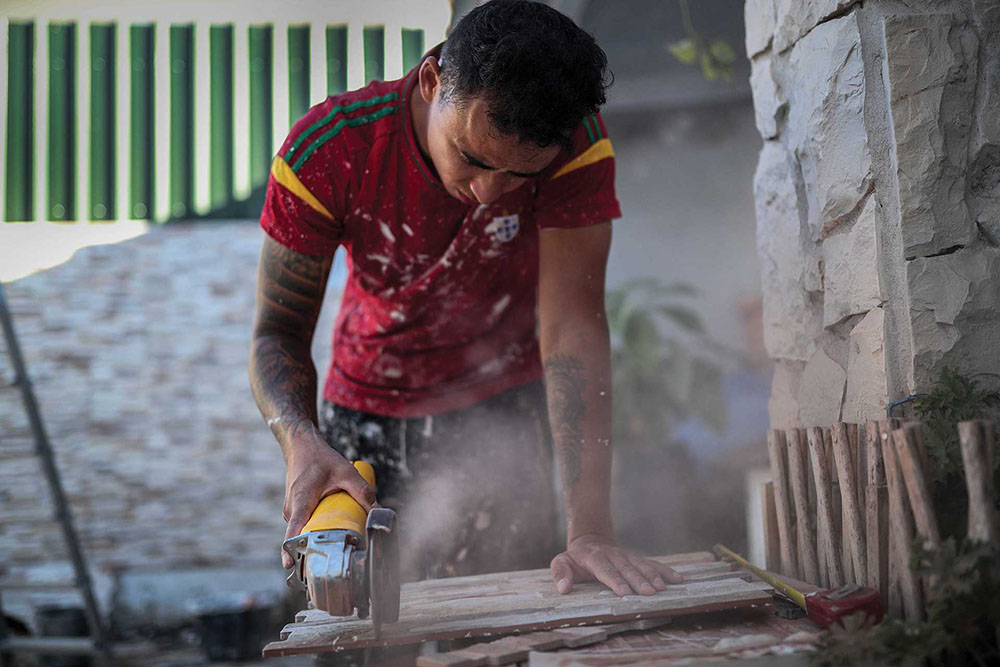
A young man working on construction projects, Setúbal, Portugal, 5 August 2021.
Volunteering is a great way of contributing to local communities at home or abroad, while developing new skills and making friends. The European Solidarity Corps gives young people the chance to volunteer for work in projects in their own country or abroad. The EU aid volunteers initiative offers over-18s the opportunity to participate in humanitarian projects worldwide.

A nurse setting up the machine for a patient’s MRI scan, Liège University Hospital, Belgium, 24 January 2020.
The EU is determined to turn the tide against cancer. With €4 billion of funding, Europe’s beating cancer plan maps out a new EU approach to cancer prevention, treatment and care. EU funding has already led to groundbreaking research, from 3D modelling of tumours to detecting cancer through a person’s breath.
The EU is building a Europe of equality. This means that women and men should get equal pay for equal work, people with disabilities are able to participate equally in all areas of life, and racism is not tolerated. It also means that people should not be excluded or marginalised, and everyone should be free to love who they want.
Migrants and EU citizens with a migrant background play a key role in European society, including as essential workers. The EU is working to ensure that everyone can participate fully in society by focusing on things such as better access to education, jobs, healthcare and housing.

© Adobe Stock
The safety and security of people in Europe, in both the physical and the digital worlds, is a top priority for the EU. It works daily to tackle threats such as terrorism, organised crime, the illegal drug trade and human trafficking.
The COVID-19 crisis and Russia’s war of aggression against Ukraine have also highlighted the threats and challenges that disinformation poses to our societies.
The EU is working with social media companies and online platforms to limit the spread of misleading information and fake news in Europe. The European Digital Media Observatory supports the work of independent fact checkers and aims to become the European hub to fight online disinformation.
Find out more about the priorities of the European Commission.

The traditional characters of the Puerto Plata Carnival, Dominican Republic, filled the streets of Nice, France, in February 2023, thanks to the Transcultura programme, which aims to deepen cultural integration in the Caribbean and strengthen the region’s cooperation with the EU.

Humanitarian aid for Gaza, November 2023. The EU is the largest humanitarian donor to the Palestinian people. Since 2000, it has provided more than €1 billion to help meet their basic needs.
The EU works closely with its neighbours and with countries around the world to build new partnerships and promote its values and interests. Through joint efforts in areas such as digitalisation, climate, energy, transport, health and education, the EU seeks to address global challenges and create a more connected and prosperous global community.
The EU also makes trade deals with other countries, most recently with Chile and New Zealand. These deals expand the trade that supports the EU economy and creates jobs.
Together, the EU and its member countries are the biggest donors of development assistance in the world. In 2023, they provided €96 billion or 42 % of the total assistance. They also contribute more than half of all global aid to education in more than 100 countries around the world.
With the global need for humanitarian aid on the rise, the EU is providing help on the front lines of the world’s worst crises. With a budget of €2.4 billion in 2023 alone, it is collectively one of the largest donors of humanitarian aid. In response to the humanitarian needs in the Middle East, which were aggravated by Hamas’s attacks in October 2023 and the ensuing conflict in Gaza, the EU has significantly increased its support for the Palestinians in Gaza and established a maritime corridor to provide urgent relief.
Find out more about EU’s strategy to connect the world.
Find out more about EU support provided to Palestinians.





